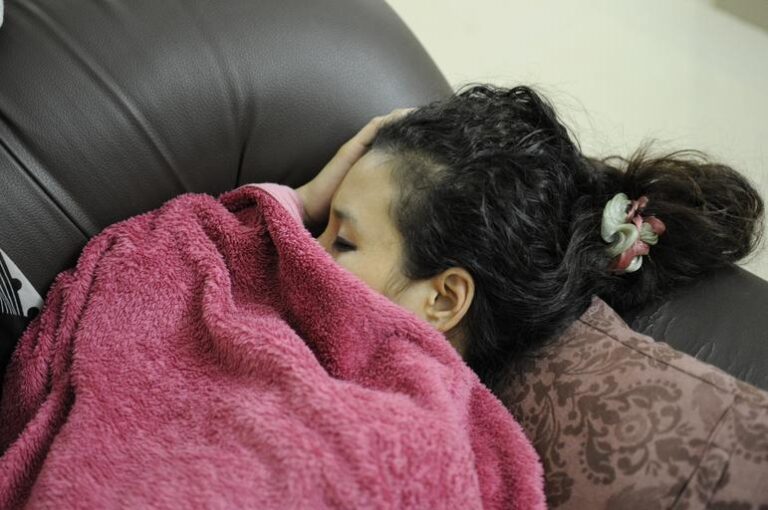If you live with Crohn’s, you may know the feeling of nodding off at your desk, on the sofa, or frankly anywhere. That heavy, bone-deep tiredness has a name, Crohn’s disease fatigue, and it can seep into every part of life. It is frustrating. It is common. And there are practical ways to make it easier to live with.
On good days you get through a to-do list. On others, 8.30 pm feels like midnight and the sofa wins. Fatigue with Crohn’s disease can shrink your world and make simple tasks feel steep. That is not a personal failing. It is your body asking for a different strategy.
Here is the hopeful bit. Small, well-chosen tweaks can help you protect energy, soften the lows, and enjoy the highs. Below, we explain causes, share tried-and-tested tips, and offer options for managing Crohn’s disease fatigue at home, at work, and in between.
What causes Crohn’s disease fatigue
Fatigue in Crohn’s is multi-layered. Chronic inflammation can make your body work overtime. Nutrient absorption can be affected, which raises the risk of iron deficiency and low vitamin B12. That is why B12 injections can help some people, although tiredness may creep back as your next dose approaches. Pain, disrupted sleep, stress, medicines, and the mental load of a long-term condition all add up.
Does Crohn’s cause fatigue
Yes, Crohn’s can contribute to tiredness in several ways. Causes of fatigue in Crohn’s disease include active inflammation, anaemia, dehydration, poor sleep, and the knock-on effects of worry and low mood. If fatigue is new, severe, or changing, speak to your doctor.
Revitalising your energy with Crohn’s
Diet Your body runs on what you eat. Aim for a nutritious pattern you can stick with, and adapt it to your symptoms. Many people find a food diary helps spot flare-up triggers. Small frequent meals can be easier on the gut than large plates. Ask your team about iron-rich foods and vitamin B12 if levels are low. Diet modifications should be personal rather than perfect.
Hydration Even mild dehydration can sap energy. Keep water close and sip through the day. Herbal tea and diluted squash count. If diarrhoea is active, you may need oral rehydration solutions. Hydration helps oxygen and nutrients reach cells efficiently.
Rest and pacing Rest is not quitting, it is strategy. Short naps, planned pauses, and saying no to one extra task can protect energy levels for the things that matter.
How to deal with Crohn’s fatigue
- Create a simple fatigue management plan that includes meals, movement, and rests.
- Batch tasks for your energy peaks. Use your dips for admin, stretching, or quiet time.
- Keep a short note of what helps on bad days, then follow your own playbook.
Enhancing your energy reserves
Gentle exercise It sounds backwards when you feel wiped, yet regular, gentle exercise can lift energy and mood. Start small, think five to ten minutes of walking, yoga, or light cycling, and build slowly. Movement supports sleep quality and blood flow.
Stress management Stress is a fuel thief. Try simple tools such as box breathing, mindfulness apps, brief stretches, or short nature breaks. A few minutes, repeated often, beats one big attempt once a month.
Nutritional support If tests show iron deficiency or low vitamin B12, your team may suggest iron or B12 injections. Ask about medicines that may worsen tiredness. Nutrient absorption and fatigue are linked, so testing matters.
Balancing sleep patterns with Crohn’s
Pain, urgency, and medication timings can disrupt sleep. Good sleep hygiene helps, even if symptoms are active.
- Keep regular hours Aim to wake and sleep at similar times daily.
- Wind down A warm bath, a book, or gentle stretches tell your brain it is time to switch off.
- Tidy the sleep setting Dark, quiet, and cool is a helpful trio.
Addressing sleep disorders
If sleep stays poor despite habits like these, ask about insomnia or sleep apnoea. Support for sleep can make a noticeable dent in Crohn’s disease tiredness.
Exploring exercise strategies for managing Crohn’s tiredness
Incorporating physical activity
Regular movement can boost oxygen delivery, improve mood, and help you sleep. It does not need to be heroic to help.
- Walking Short, steady walks are accessible and adjustable.
- Yoga Gentle flows support flexibility, breath, and calm.
- Swimming Water eases joint load while working the whole body.
Tip If a flare hits, press pause. Resume when symptoms settle.
Navigating work and education with Crohn’s tiredness
Balancing responsibilities
- Talk early Explain how fatigue shows up for you. Many workplaces and colleges offer adjustments.
- Prioritise Break big tasks into small steps. Use energy peaks for thinking work.
- Pace Short, regular breaks prevent burnout later.
Flexible work arrangements
- Work from home Reduces commuting strain and allows smart pacing.
- Flexible hours Agree start and finish times that suit your body clock.
Accessing educational support
- Disability services Ask about deadline flexibility, note-taking help, or adjusted exam settings.
- Tutoring Short bursts of support can keep you on track.
Exploring complementary approaches for Crohn’s fatigue
Mind body practices
- Mindfulness and meditation Short, guided sessions can lower stress and support sleep hygiene.
- Relaxation techniques Deep breathing and progressive muscle relaxation can calm the nervous system.
Acupuncture Some people report benefits for fatigue, though research is mixed. If you are curious, ask your clinical team about safe options.
Herbal supplements Products like ginseng or rhodiola are often promoted for energy. Evidence is limited and interactions are possible, so always check with a professional first.
Mental health and Crohn’s disease fatigue
Why mood matters
Living with ongoing symptoms is hard work. Low mood, anxiety, and stress can drain motivation and increase tiredness.
Coping strategies
- Cognitive behavioural therapy Can help you spot unhelpful thoughts and reduce stress load.
- Simple stress reducers Breath work, brief meditations, and regular movement support energy levels.
- Talk to someone A counsellor, peer group, or trusted friend can make a real difference.

Addressing sleep disorders in Crohn’s fatigue management
Sleep hygiene practices
Keep a consistent sleep window, reduce screens before bed, and fine tune your bedroom for quiet and comfort. These small steps stack up.
- Regular schedule A steady routine supports your internal clock.
- Relaxing routine Reading, a bath, or calming music helps you wind down.
- Optimise the space Blackout curtains, earplugs, and a supportive mattress can help.
When to seek extra help
If none of this touches the sides, ask your GP about a sleep review. A referral to a sleep clinic can rule out conditions like sleep apnoea or insomnia.
How can I boost my energy with Crohn’s
- Plan ahead Put meals, movement, and rest in your diary. Managing Crohn’s disease fatigue works best when planned, not improvised.
- Fuel smart Small frequent meals, steady hydration, and snacks you tolerate keep energy stable.
- Ask for tests Iron studies, vitamin B12, and folate checks can spot correctable issues.
- Protect sleep Keep a wind-down window and park your phone outside the bedroom.
- Move a little Gentle exercise supports mood, sleep, and stamina over time.
Putting it together
There is no single fix, yet small changes add up. Living with Crohn’s disease fatigue is easier with a plan you can actually follow, honest conversations with people around you, and kind expectations of yourself.
Medical disclaimer Remember, this blog post is intended for informational purposes only and should not be construed as medical advice. Always consult with your doctor to discuss your individual situation and determine the best course of treatment for you. Do not start or stop medications without speaking to a doctor. Do not change your diet without speaking to your doctor or a healthcare professional.





